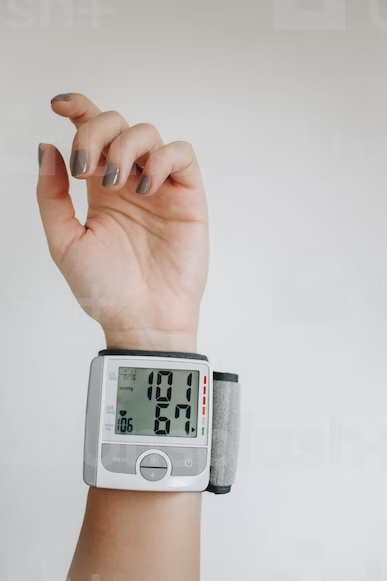If you have been diagnosed with high blood pressure, there are a variety of things you can do to manage it – from non-medicinal methods to medications.
Your lifestyle probably plays the biggest role in treating your high blood pressure. Successfully controlling your high blood pressure through a healthy lifestyle, may result in you delaying or even avoiding the need for medication all together. Here, we will be guiding you through how to make certain lifestyle changes, and what they are and why.
Lifestyle changes
Eat a healthy and balanced diet
It is advised to eat a diet which is rich in whole grains, vegetables, fruits and low-fat dairy products as these can lower your blood pressure by up to 14 mm Hg. This eating plan is known as the DASH diet; “Dietary Approaches to Stop Hypertension”.
It can be rather difficult to change your eating habits, but here are some tips to help you along your way:
- Keep a food diary: aim to write down what you eat and drink, even if it is for as short of a time as a week. It can shed light on what you’re eating habits are, some of which you may not realise in day to day life. You should monitor what you eat, how much you eat, when you eat and why.
- Be supermarket smart: always be sure to read the food labels when you are shopping in store or online, where all the information is provided. Furthermore, stick to your new found healthy eating plan when out at a restaurant or café
- Consider boosting potassium in your diet: Potassium has the ability to lessen the effects of sodium on blood pressure. The best source of potassium is foods like fruit and vegetables, which are far more effective than simply taking potassium supplements. You should discuss with your doctor about the potassium level that is best for you.
Cut down on the amount of alcohol you drink
Certain alcohol, such as red wine, can have health benefits attached. Alternatively, alcohol can be very damaging to your health. In small doses, alcohol can potentially lower your blood pressure by 2 to 4 mm Hg.
It must be noted that the effect alcohol can have on lowering blood pressure is lost when you drink too much of it. For example, generally this applies to one drink a day for women and for men older than 65, or more than two a day for men aged 65 and younger. To put it in perspective, one drink should equal around 12 oz of beer, 5 oz of wine or 1.5 oz of 80-proof liquor.
Drinking over amount of what is considered a moderate amount of alcohol can actually raise your blood pressure by several points. Furthermore, it can also reduce the effectiveness of any blood pressure medications you may take.
To track how many you are consuming, try this ‘unit calculator’ as provided by Alcohol Concern.
Exercise regularly
At least 30 minutes of exercise every other minimum constitutes as ‘regular physical activity’. Regular physical activity can significantly lower your blood pressure by around 4 to 9 mm Hg. Consistency is key with exercising to lower blood pressure because if you stop exercising, your blood pressure will rise again.
If you only have slightly high blood pressure (prehypertension), exercising can really help in avoiding developing full-blown hypertension. If in your case you already have hypertension, it is true that regular physical activity can bring your blood pressure down to much safer levels.
The best types of exercise which are recommended for lowering blood pressure include:
- Walking
- Jogging
- Cycling
- Swimming
- Dancing
Your GP can offer you advice on starting an exercise plan.
Try and lose small amounts of weight if necessary, or keep weight off
As weight increases , often, as does blood pressure. Being overweight or obese can cause issues with disrupted breathing while you sleep (sleep apnea), which also furthers the raising of blood pressure.
Carrying too much weight on your waistline specifically can put you at greater risk of higher levels of blood pressure.
Generally, men are at risk if their waist measurement is greater than 40 inches (102 cm). Moreover, women are at risk if their waist measurement is greater than around 35 inches (89 cm).
Quit smoking
Smoking has an overall negative effect on your health, and is the cause of around 90% of all lung cancer cases in the UK, according to Cancer Research UK.
Smoking also increases your blood pressure, in fact each cigarette you smoke increases your blood pressure minutes after you finish it. Quitting smoking altogether helps your blood pressure to return to normal levels.
People who do quit smoking altogether have substantial increases in life expectancy. To help you stop smoking click here.
For more information about treating this, feel free to contact us here. Alternatively, if you think that your illness has been caused by dress at work, you may have access to company health insurance that will cover the cost of any appointments or treatments.

